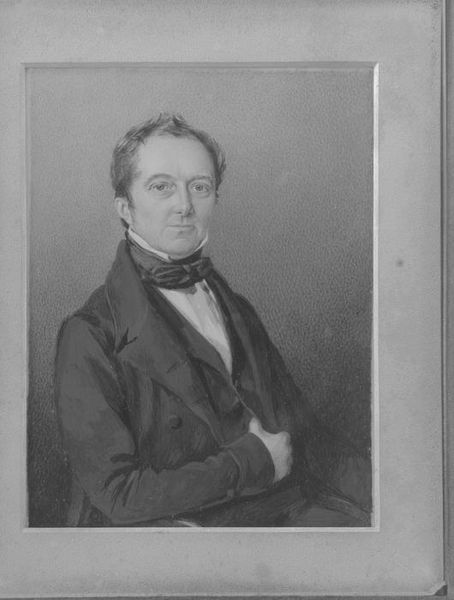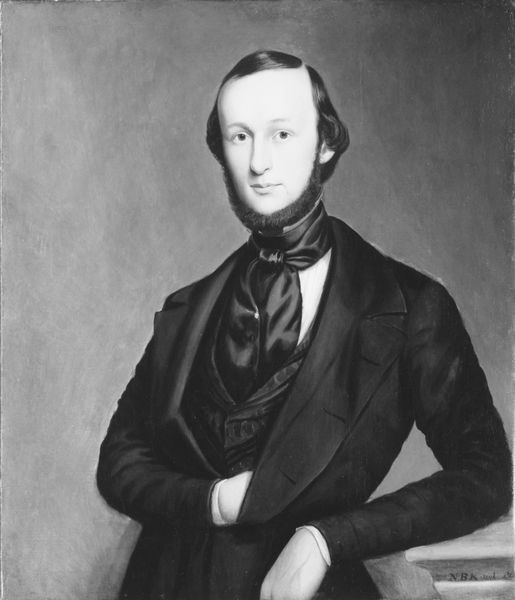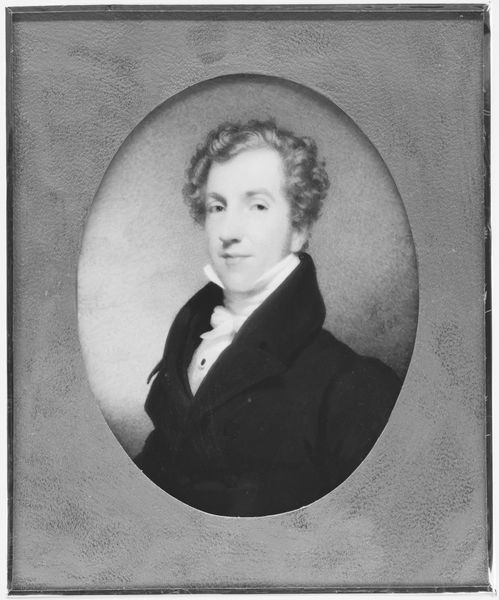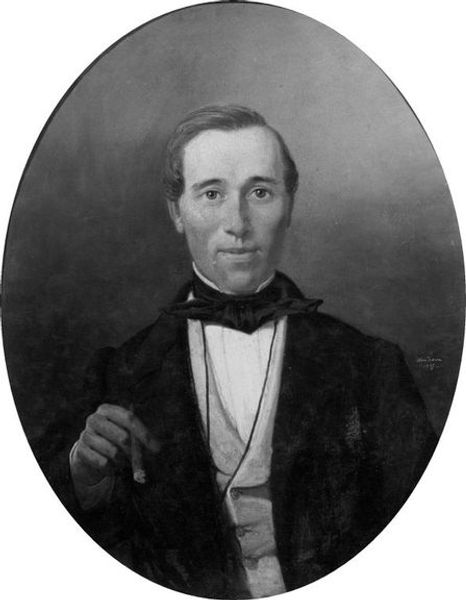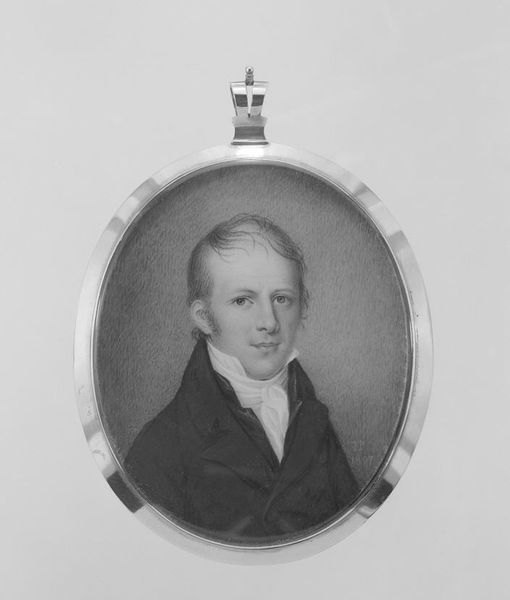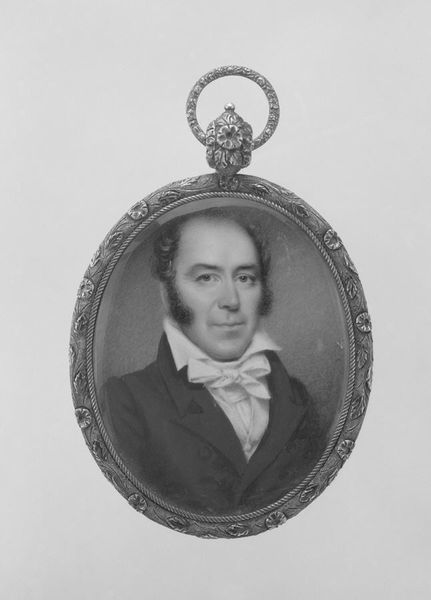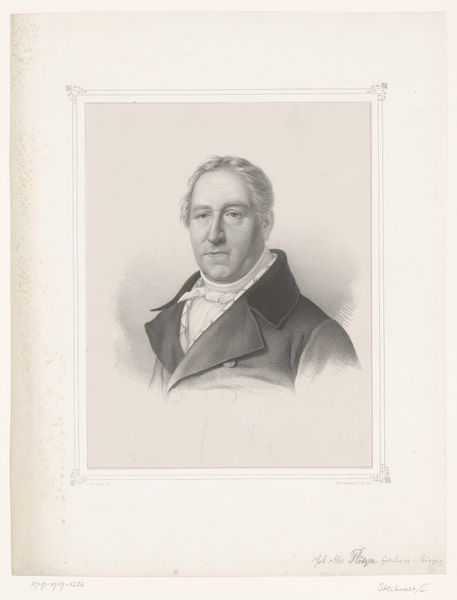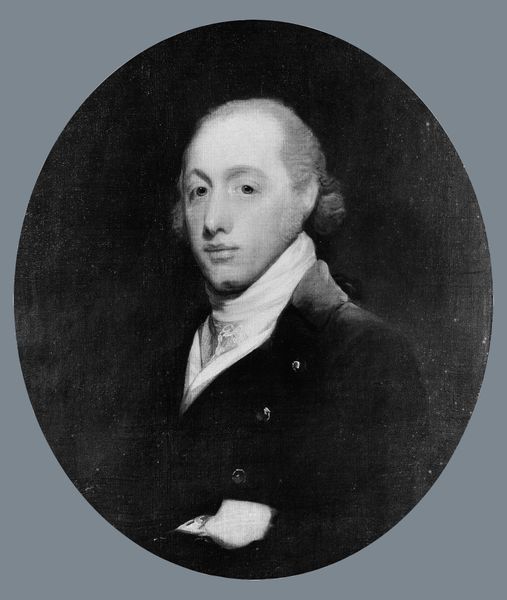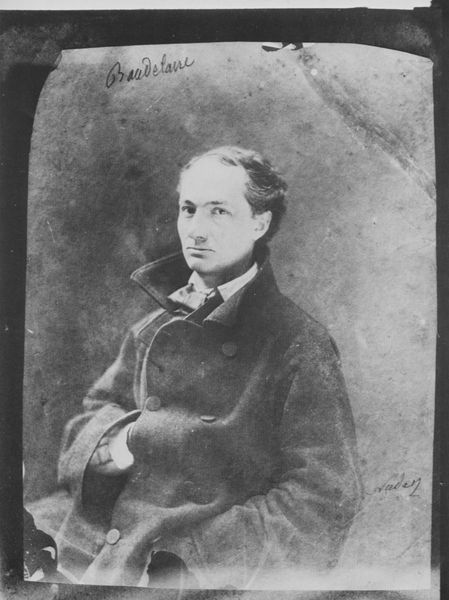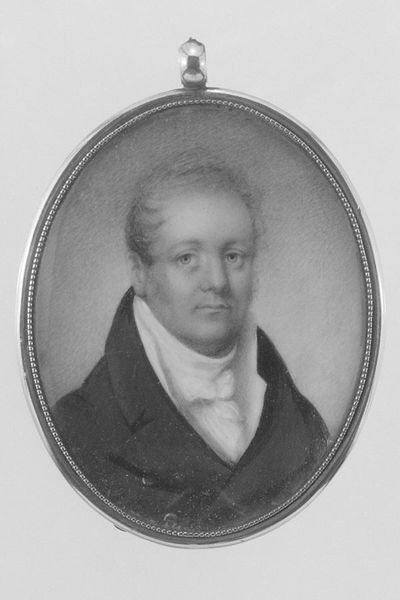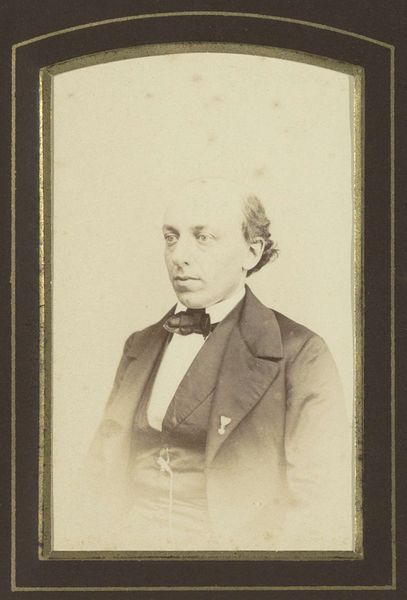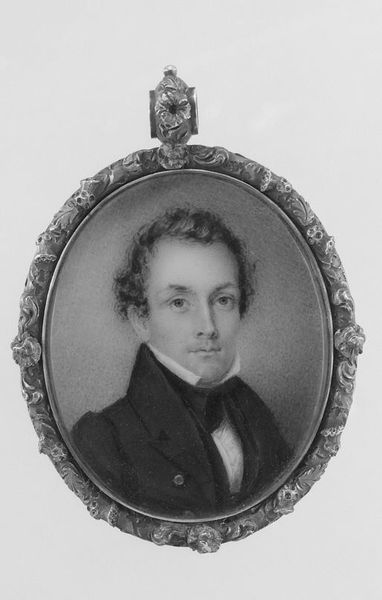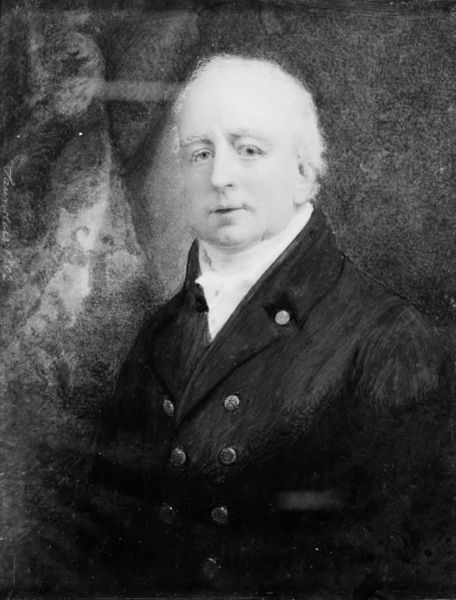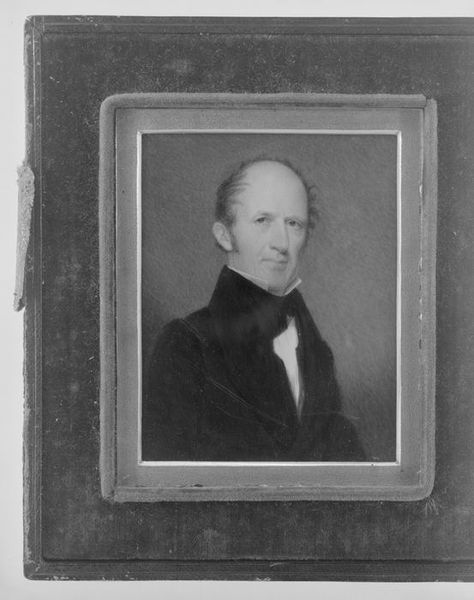
drawing, pencil, charcoal
#
portrait
#
drawing
#
romanticism
#
pencil
#
charcoal
#
history-painting
#
academic-art
#
realism
Dimensions: 4 3/8 x 3 7/16 in. (11.1 x 8.8 cm)
Copyright: Public Domain
This is a ‘Portrait of a Gentleman,’ made by William Hudson Jr. around the first half of the 1800s. It's painted with watercolor on ivory, a material that speaks volumes about its time. Ivory, sourced from elephant tusks, wasn't just a surface; it was a statement of luxury and access, reflecting the sitter's status, and the labour and politics involved in its trade. Hudson’s delicate brushwork captures the gentleman's likeness in fine detail, a demanding process requiring skill and precision. The translucent quality of ivory lends the portrait a soft, almost ethereal glow, enhancing its appeal as a keepsake. Miniature portraits like these were not mere decorations; they were intimate objects, often worn as jewelry or kept close, and were a popular token of affection or remembrance. They served as a symbol of social standing, reflecting the sitter’s position in a rapidly changing world. Considering the materials and the meticulous making involved brings us closer to understanding the full meaning of this artwork.
Comments
No comments
Be the first to comment and join the conversation on the ultimate creative platform.
